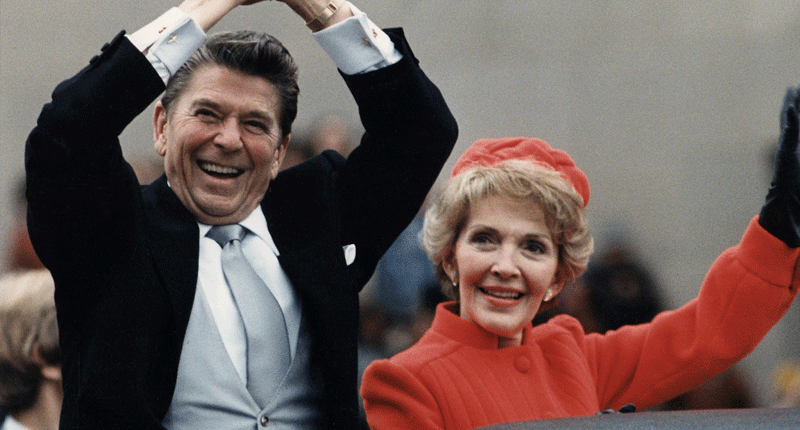Then-First Lady Nancy Reagan refused a request from actor Rock Hudson to help him get experimental treatment just weeks before he died of AIDS in 1985, Buzzfeed reported on Monday.
Hudson's publicist, Dale Olson, contacted then-deputy press secretary Mark Weinberg in July 1985, asking if President Ronald Reagan's administration would help Hudson be transferred to a French military hospital where he could be seen by Dominique Dormant. Dormant had secretly provided treatment to Hudson for the disease months earlier.
At the time, Dormant was working on developing HPA-23, an early experimental drug that led dozens of AIDS patients from the U.S. into France seeking treatment, believing it could help them bolster their immune systems against the virus.
"Commanding general of Percy Hospital has turned down Rock Hudson as a patient because he is not French," Olson's telgram read. "Doctor Dormant in Paris believes a request from the White House or a high American official would change his mind."
Weinberg told Buzzfeed that, although Hudson was a friend of then-President Ronald Reagan's from their days as actors, the first lady was concerned that they "had to be fair" regarding these types of requests.
"The view was, 'Well, we're so sorry,'" Weinberg said. "And she was, they were both very sorry for Rock's condition and felt for him and all the people. But it just wasn't something that the White House felt that they could do something different for him than they would do for anybody else."
Weinberg subsequently wrote a memo to Bill Martin, an assistant for President Reagan within the National Security Council, explaining his conversation with the first lady.
"She did not feel this was something the White House should get into and agreed to my suggestion that we refer the writer to the U.S. Embassy, Paris," Weinberg wrote.
Weinberg insisted that her response "had nothing to do with AIDS or AIDS policy." The Reagan administration was criticized for its early inaction in response to the virus, which killed more than 6,000 people that year alone.
"In fairness — and I'm not saying this to you, just to people — remember where the country was in the '80s," Weinberg said. "We talk about it now: 'How could he?' Nobody knew, nobody understood. It was all brand new back then."
LGBT activist Peter Staley, who founded the HIV/AIDS patient advocacy organization the Treatment Group, took issue with Weinberg's explanation, calling it "strange."
"I'm sure if it had been Bob Hope in that hospital with some rare, incurable cancer, Air Force One would have been dispatched to help save him," Staley told Buzzfeed. "There's no getting around the fact that they left Rock Hudson out to dry. As soon as he had that frightening homosexual disease, he became as unwanted and ignored as the rest of us."
While Hudson eventually gained access to treatment from Dormant, his condition -- by then publicly revealed as a result of contracting AIDS -- had weakened to the point where HPA-23 could not help him. Hudson returned to the U.S. that month, as public discussion of the disease increased with the news he was a victim. He died on Oct. 2.
Almost two years later, Ronald Reagan addressed the issue in public for the first time during a speech at a May 1987 fundraiser for the American Foundation for AIDS Research.
"It's also important that America not reject those who have the disease, but care for them with dignity and kindness," he said at the time. "Final judgment is up to God; our part is to ease the suffering and to find a cure."
Leave a Comment
Related Post
